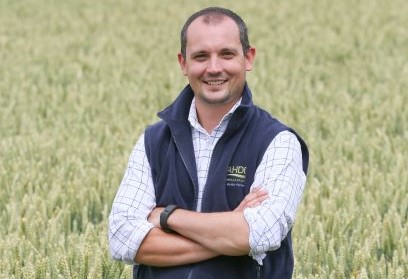On-farm demonstrations provide practical messages for growers to try at home
Friday, 13 December 2019

Attention to detail has been employed by Brian Barker, along with his farm team and the researchers at the AHDB Strategic Cereal Farm East, over the last year, which has culminated in the results that were shared this week at the Results Day.
From plant counts and disease assessments, to drainage water analysis and earthworm counting, the results have been analysed for the harvest 2019 data and displayed alongside the wider industry research to farmers, agronomists and the industry. The workshops and presentations looked at a range of topics aimed at challenging thinking and getting growers to question and develop what they do on their farms.
The winter wheat variety Graham, under a low input programme topped the cost of production for this demonstration looking at managed low inputs, with a cost of production of £55.79/t, despite having achieved the sixth highest yield of 11.59t/ha. This work included assessing the relationship between fungicide applications and natural resistance within winter wheat and what this means for both yield and margin. The results showed that more resistant varieties under a low fungicide application programme in this year performed the best for margin, while less resistant varieties performed worst for yield and margin.
Employing the use of cover crops on this farm has reinforced research to show that nitrogen is readily taken up by a cover crop over-winter, to the benefit of water quality with an 88% reduction in nitrate leaching found in the drainage water samples. The variability in performance of the subsequent cash crop, has determined that more work is to be done in this area to understand the effects and this will be followed through on the Strategic Farm in future years.
The results from the work on boosting early biomass, showed that placing starter fertilisers appears to improve the initial establishment of a winter wheat crop. While further work is required to repeat the data for a further season, if the results are replicable a well-established crop by the winter means that the yield potential can be increased, which could be an extra advantage when delaying drilling due to black-grass or BYDV.
Brian said:
“With this work we want to prove to farmers that change is possible and give them the confidence to re-think the way they do things.
“Let’s face it: the pressure on farmers is only going to intensify. By challenging our mind-sets and questioning old practice we can become better prepared for the future.”
The results day marked the end of the second year of the Strategic Cereal Farm East programme. Attendees were given a taste of the plan for the coming season comprising some continuation and some new projects: all three headline projects will continue over the next year to provide richer data and take into consideration variations between seasons.
Among the new work planned for 2020 is a project looking at monitoring pests and their natural enemies. The work aims to track variation in pest pressure and encourage farmers to consider these when planning their spraying programmes and implement measure to encourage beneficials.
AHDB Knowledge Exchange Manager Teresa Meadows said:
“Sharing the results of the Strategic Farm for the East region today has provided farmers and agronomists the opportunity to discuss between each other and with the researchers, the research that has been undertaken in practice on this commercial farm over the last year.
“The results have shown that trialling these changes on-farm aims to assist with increasing productivity, whilst managing or reducing inputs. All attendees have taken home a “how to” guide for the areas that they are interested in, to be able to replicate these trials and analyse the results for the benefit of their business.”
Following the challenging autumn weather, all the demonstrations for the new season are now in the ground and the next year of Strategic Cereal Farm East programme is now underway. Those interested in learning more can visit the Strategic Cereal Farm East webpage, which includes videos, reports and further information on all the work carried out at Lodge Farm since the beginning of the programme back in 2017.
The next Open Day will take place on 4th June 2020 at the Strategic Cereal Farm East in Suffolk, when attendees will be able to see demonstrations in practice on-farm and speak to the researchers.

